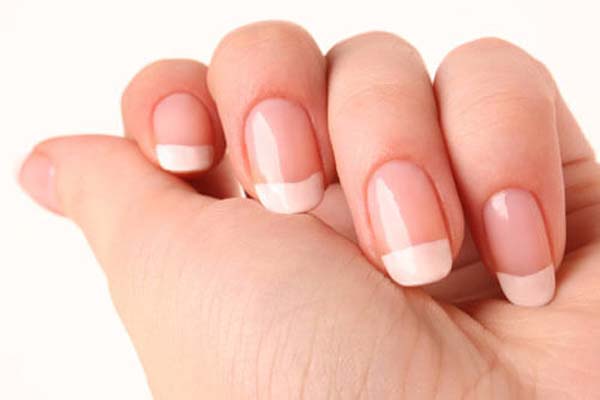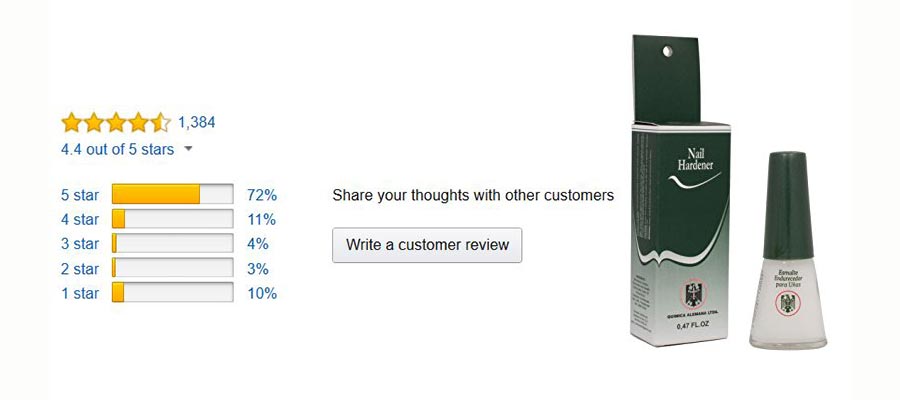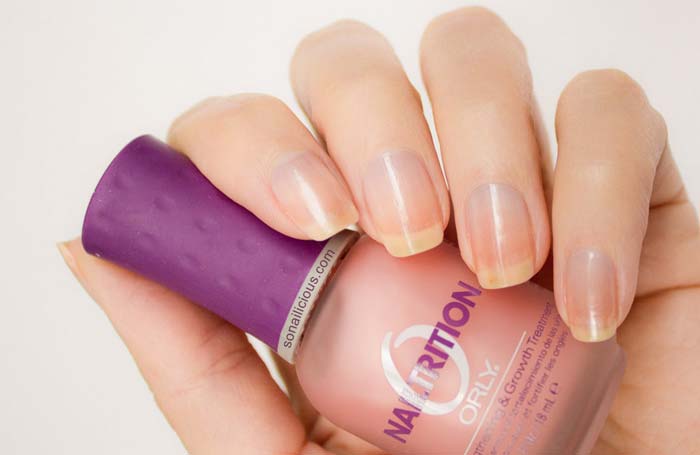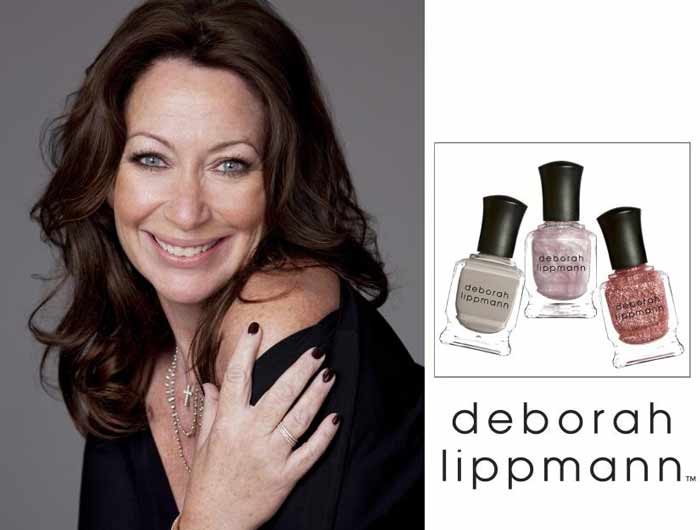Best Nail Hardener, Natural & without Formaldehyde
If your are seeking to harden your nails, a thought of a nail hardener must have crossed your mind. This article explains what hardeners are, the best including Sally Hansen, Quimica and OPI, how to make a natural DIY at home plus more application safety ideas
What is a Nail Hardener
A nail hardener, as its name suggests is actually a treatment designed for toughening your nails.
This mainly done to make them stronger or harder so they don’t break, crack, peel off, or chip easily. Since most of individuals frequently encounter such problems .
Probably, you too have broken a nail or nails once a couple of times, a nail hardener could be a great investment from preventing such breakage issues.
Nail Hardeners can be categorized into two;
Cross-linking Hardeners-it reacts from inside of your nails-it reacts with keratin to harden it and make it stronger
Reinforcing Hardeners-It works on the outside of the nail with ingredients that coat the nail. It is an additional layer that reinforces the natural structure of your nails.
Nail Hardener Ingredients ?
A nail hardener has similar texture and look like a transparent base or top coat and usually has any of the following active ingredients:
- Proteins
- Calcium
- Vitamins A, D, E, or Biotin
- Horsetail Extracts
- Liquid diamond powder
- Chemical solvents and plasticizers like butyl acetate, ethyl acetate, and formaldehyde resin.
- Other natural nutrients and artificial ingredients that strengthen and protect the nail’s upper layers.
- Natural oils and waxes that nourish the oil from the inside out
Best Nail Hardener without Formaldehyde
Although there is no single no1 product that will instantly make your nails hard, there are a few nail hardeners with great reputation. Here are the top three most popular nail hardeners for this purpose:
Sally Hansen’s Hard as Nails
Sally Hansen’s Hard as Nails is one the most popular hardener. It helps prevent chipping, splitting, cracking, long-lasting protection.
Apply to bare nails and under nail tips.
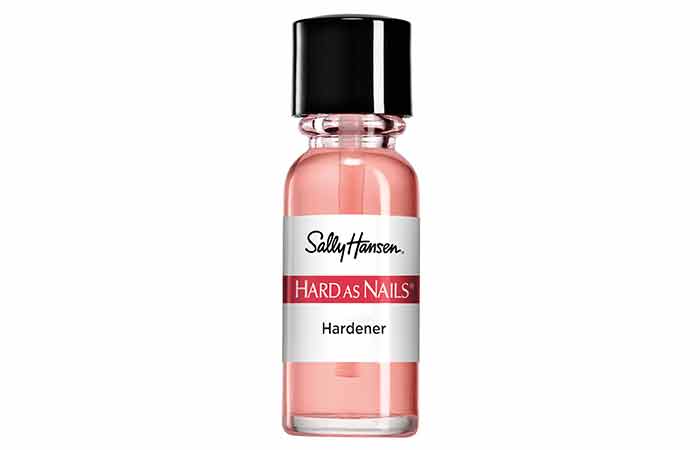
You can use Hard As Nails alone, or wear as a strengthening base coat for your nail color.
Most online reviewers that tried this claim that they see results faster than other brands of this kind, although a few complain that the formula tends to get a bit sticky and gloopy after one or a couple of months of use.
Quimica Alemana Nail Hardener
Apart from creating a protective barrier this hardener prevents chipping, peeling and splitting of your nails.
On Amazon, it one of the most reviewed hardener.Over 70% of verified customers give it a 5-star rating.
To start the treatment, apply a thin coat from the center of the nail down to the tip once a week. Let it dry and paint the nail with your favorite nail polish. After three applications, as the nail gets stronger, brush one thin coat covering the whole nail
Note, the manufacturer points out that it is not meant for daily , it can cause discomfort when you start to use and should be kept away from children
Essie’s Grow Stronger
This is a product with a formula designed to make nails grow stronger and faster, which is useful if you are going for both of these benefits. Online consumers gave this product more than 4.2/5 stars on average, indicating that it works for the majority of them, typically in 7-10 days.
OPI Natural Nail Strengthener
Although this is pricier than Essie, Sally Hansen, and other popular brands, most online reviewers gave this anywhere from 4 to 5 stars, with some claiming that it’s the most effective strengthener they have ever tried.
Orly Nail Nutrition
Another good drugstore find with a fair price and good amount of product which is enough for at least 1 month of use. This has an average rating of 4.3/5 stars on most online review websites.
Brucci nail hardener
This DBP-free non-toxic nail hardener which claims to strengthen nails and encourage new nail growth within 10 days. This is one of cheapest nail hardeners available in the market as it retails for just $2.99, which is 3x-5x less than other brands.
Other good Nail Hardeners
Some other nail hardeners available in the market you could try out are:
- Natural nail hardeners with mostly or exclusively natural ingredients like Organic Nail Hardener or natural oils like coconut, olive oil, and Argan.
- Hard as Hoof Nail Strengthening Cream with Cherry Almond. If you want an alternative to nail polish treatments this cream here has it all: it nourishes your nails, moisturizes, soothes and rejuvenates cuticles and protects nails and cuticles from further friction. It also easily absorbed and has a light pleasant floral/cherry smell.
- Acrylic nail hardeners for use over acrylic nails like Sally Hansen Hard as Wraps and Daby Nail Hardener.
DIY Natural Nail Strengthener
While there are many nail hardeners available at drugstores, beauty supply stores, and online, if you don’t have the money or time to buy one, you can make your own natural nail hardener at home by mixing in a few ingredients already found in your kitchen. Some easy DIY nail hardeners you could try at home is the following:
Recipe no 1: Olive oil nail hardener with garlic and lemon Juice. For this recipe, combine 3 tbsp. of olive oil, one clove of crushed garlic, and a couple of lemon juice drops and mix in a small bottle, Apply to your nails with a clear nail polish brush and leave it like that without rinsing. Do this for at least a week and you’ll nails will eventually become more strong and radiant, while your cuticles will look nicely polished as well.
Recipe no 2: Vitamin E and essential oil blend. For this recipe, you’ll need to crush some vitamin E capsules (or buy Vitamin E in pure liquid form at your local drugstore) and optionally add a few drops of frankincense or carrot seed essential oil. Apply the mixture onto your nails with a clear nail polish, gently massage over and around your nails and cuticles, and leave it without rinsing. Do this at least 3 times per week and you’ll start to notice results in 2 weeks or more.
How Nail Hardeners work-Are they Safe?
To understand how nail hardeners work, you need to know some basics of your nail sturcture. The nail is made of keratin strands attached together by connectors which are also made of keratin.
Keratin is the protein that protects epithelial cells from damage or stress. It is the key structural material making up the outer layer of your nails, hair and skin.
The hardness and strength or weakness, brittleness or softness of your toenails and fingernails entirely depends on the balance of keratin connectors to keratin strands.
Insufficient connectors will result to soft or brittle nails that are susceptible to bending, tearing and peeling.
On the other hand, connectors in excess (which in actual sense implies they are tightly packed together and therefore insufficient space for hydration to be retained), makes nails are prone to splitting and cracking.
Basing on that, it is clear that the strength of the nail plate isn’t only a function of its hardness, but also its flexibility. Robust nails should be able to endure daily wear and tear without peeling, breaking, cracking or folding.
This means your nail plates must have a balance between sufficient keratin bonds and hydration.
So how or where do hardeners come in?
Nail hardeners are a means to add connectors artificially. According to Lipmann, an renown expert in manicure, the ingredients of hardeners react with the natural protein in your nails to create chemical bonds that tie the protein chains together to make nails harder.
In addition to proteins the other core ingredient that is thought to be responsible for the bonding is ethyl acetate, according to another manicure expert from Kiss Products.
Calcium also plays a role in hardening weak, soft and brittle nails.
Are all the ingredients safe?
Not all the ingredients of hardeners are safe for your nails. But not all nail hardeners are formulated with safe ingredients.
According to Dana Stern, a board-certified dermatologist and nail specialist, some may contain formaldehyde or formalin which can damage your nails.
Formaldehyde will initially harden your nail, but with time, the nail becomes paradoxically brittle and is at risk for lifting or separating off of the nail bed.
As mentioned earlier more connectors take away from space wherein moisture can enter/be retained, potentially dehydrating the nail and reducing its flexibility. If a substance gets too rigid, it is less able to endure great force.
Tips for selecting/using Nail Polish Hardeners
When you are looking for a new nail polish hardener, you need to make sure that it has more than 2 active ingredients listed first in its formula, such as those mentioned earlier in the article, otherwise the formula won’t have much effect on the nails.
The thing is, some of artificial ingredients need to be in appropriate ratios as too much of one ingredient or combo of these will make then nail so hard that it becomes brittle and hard to bend, which of cause defeats the purpose of using a nail hardener in the first place.
Therefore, when you choose a nail polish make sure that any artificial ingredients are not listed first in large amounts.
If you don’t want to risk having opposite results or you don’t want to use any potentially harmful or toxic ingredients, try a non-toxic natural brand (look for natural or organic labels and ingredients) or simply make your own nail hardener with the recipes listed earlier on this article.
You may get the same results minus the toxic chemicals, although natural formulations typically need to be applied consistently for longer to work.
Nail Hardeners Vs Strengtheners
A nail hardener and strengthener may sound as the same thing basing on the idea that they are both to make nails less brittle. In fact, some classify hardeners as a type of a strengthener. Elsewhere, strengtheners are referred to as hydrators. This makes the whole scenario a bit confusing…
However, looking deep into it, there are some differences between hardeners and strengtheners.
Strengtheners, as opposed to hardeners, do not only seek to fill in the gaps where keratin is missing, but also seek to balance the nail’s needs of hydration and keratin bonds thus making your nails tough and flexible.
Hardeners especially the cross-linking types, usually come with formaldehyde. As mentioned earlier, when used over time, this chemical draws moisture out of your nails making them dry and eventually brittle
Below is a video with more info.
Originally posted 2021-02-03 03:41:00.

